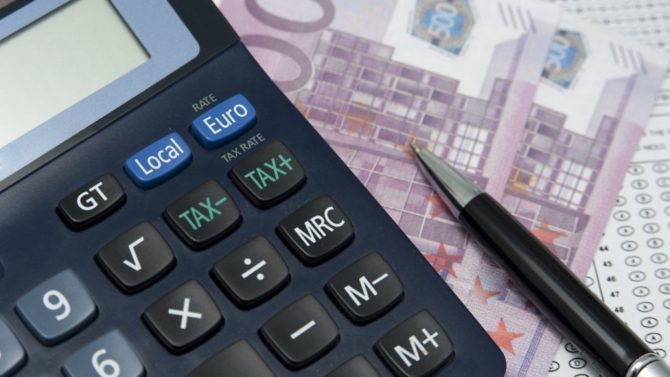What is the flat tax in France and do I have to pay it?

Find out how the new flat tax of 30% on income from financial investments works in France
Since 1 January 2018, France has had a flat tax of 30% on income and gains from financial investments of individuals resident in France. The two types of financial investments that most will be familiar with are interest-earning bank accounts and shares which pay out dividends. A variety of other investment types are also covered such as bonds, life assurance products and investment funds. It does not cover income and gains from real estate property owned either directly or via funds.
The flat tax does not apply to the following:
? Income generated within a Livret A (tax-free savings account) or income and gains arising within a PEA (tax-free investment account) and several other state-approved tax-efficient investment wrappers
? Certain pre-1997 life assurance (assurance-vie) type products
? Income and gains from qualifying unquoted companies (to encourage investment in start-ups)
? Income already accounted for as part of a business’ profits
The flat tax rate of 30% is made up of two components:
? 12.8% income tax
? 17.2% social charges
_____________________________________________________________________________
Don’t miss
What is taxe d’habitation and do I have to pay it?
What is taxe foncière and do I have to pay it?
____________________________________________________________________________
Flat or progressive?
It is possible to opt for the investment income to be added to other income (such as salary, pensions, rental income, business profits) and be subject to the normal progressive tax rates up to 45%. You can’t pick and choose though; if you opt to be taxed in this way, it will apply to all investment income within the scope of the flat tax. The option is available on a year-by-year basis. In practice, you would calculate the tax payable under both options and select whichever is more favourable for you.
The taxable investment income subject to the flat tax is the gross amount, which is one reason why some might be better off opting to be subject to the progressive tax rates. If you opt for the progressive rates, the taxable income is net of expenses (such as custody fees and management fees if there are any) and in particular for dividends, a 40% allowance applicable in most cases. These deductions are not available under the flat tax regime.
How and when will I be taxed?
Generally, French residents will be taxed on their financial investment income in two stages:
? The income is initially taxed at source when it is paid. The paying entity will deduct a withholding tax which can be viewed as a payment on account. The withholding rate will be 12.8% from 2018 (previously 21% for dividends and 24% for interest) plus social charges of 17.2% giving a total of 30%.
? The income is then declared in the following year and subject to the flat tax (or option to tax at progressive rates), and the tax which was withheld at source is offset against the tax due. Any excess tax withheld is refunded.
_____________________________________________________________________________
Don’t miss
Could you reduce your tax bill by moving to France?
Completing your French income tax return
_____________________________________________________________________________
Investment contracts
It is worth mentioning separately assurance-vie and contrats de capitalisation. These are both investment contracts whereby the investor pays a premium (or premiums) that are invested in funds in accordance with their instructions. For tax purposes, the duration of the contract is either the initially agreed term or a shorter period if the investor cashes in or sells the contract before it matures. The taxable gain is the value of the fund when the contract ends minus the premiums paid. A loss may arise if the underlying investment has dropped in value.
From 2018, the tax treatment of gains from these products depends on whether the gain arises from premiums paid before 27 September 2017 or since that date. If premiums are paid in both periods, the gain arising is apportioned based on the amount of premiums paid in both periods.
? Gains arising from premiums paid from 27 September 2017 onwards: Firstly, an allowance of €4,600 (single) or €9,200 (married/civil partnership) is applied. The gain is then treated like the interest and dividends mentioned previously except that if the contract duration is eight years or more, the income tax element of the flat tax is 7.5% (instead of 12.8%) in respect of premiums up to €150,000. Gains corresponding to premiums over €150,000 are subject to the full 12.8%. The taxpayer can opt to be taxed at the progressive tax rates.
? Gains arising from premiums paid before 27 September 2017: The tax treatment of these gains is essentially the same as before the introduction of the flat tax. The taxpayer is entitled to the allowance of €4,600 (single) or €9,200 (married/civil partnership). When the gain arises, the taxpayer has the option of being taxed at a fixed rate of tax depending on the duration of the contract as follows – eight years and over, 7.5%; between four and eight years, 15%; under four years, 35%.If the taxpayer does not opt for the fixed rate of tax then the following year, when the gain is declared and taxed, it must be subject to the progressive rates of tax.
Information provided in June 2018 by Kehinde Duada, an English-French bilingual chartered accountant who heads Greenwich Taxation Services
Share to: Facebook Twitter LinkedIn Email


